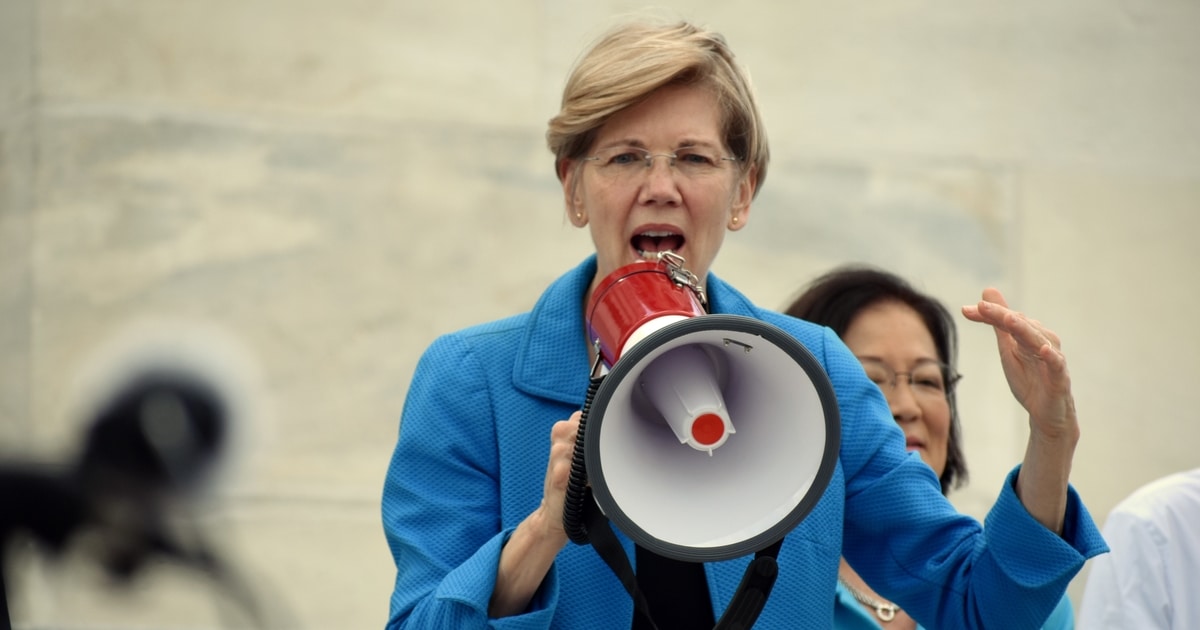US Senator Elizabeth Warren questioned bitcoin mining firm Greenidge Generation Holdings about the impact of its operations on power prices, climate change and the local area as part of her efforts to tackle the negative consequences of cryptocurrency mining on the environment.
Warren, in a letter to CEO of Greenidge Generation Holdings Jeff Kirt, inquired about the aforementioned concerns on Thursday afternoon.
Highlighting her concerns, Massachusetts’ Democratic US senator Warren wrote in the letter stating that: “given the extraordinarily high energy usage and carbon emissions associated with Bitcoin mining, mining operations at Greenidge and other plants raise concerns about their impacts on the global environment, on local ecosystems, and on consumer electricity costs.”
This is the first time that Warren has pushed a specific bitcoin mining firm for information. “We need to better understand how much energy facilities like Greenidge are using, how much they’re emitting into the environment, and what impact they’re having on electricity prices for American consumers,” Warren told Bloomberg media in an email.
Greenidge will respond to Warren to shed light on how “the facility meets all of New York’s nation-leading environmental standards, is bringing economic opportunity to an under-served area of the state and is a model for crypto mining with widespread local support,” the company mentioned in a statement.
Greenidge, which is managed by private equity firm Atlas Holdings LLC, has come under scrutiny for its rising electricity consumption which has increased to almost as much as the entire nation of Argentina’s energy usage.
According to its website, the firm uses low carbon sources of electricity for its mining operations and purchases carbon offsets credits. It also stated that the electricity used for its New York mining plant is generated by natural gas.
Greenidge, which claims to be the first carbon-neutral bitcoin mining company in the US, has one mining facility in upstate New York and has plans to install another one in South Carolina.
Earlier this year, Greenidge’s mining facility in New York obtained much criticism. Environmentalists complained against the idea of the power station burning natural gas to mine Bitcoin and operate its cooling system, alleging that such activities have a negative impact on the local lake.
Big Fight Brewing Over Crypto
Raising issues against Greenidge generation firm is not the first time that Senator Elizabeth Warren has taken aim at the cryptocurrency sector over its adverse impact on consumers, the financial system, and the environment.
The long-standing critic sees cryptocurrency as a new shadow bank. According to her, a shadow bank is a non-bank financial entity that offers services outside the remit of normal banking regulation. In July, Warren – a member of the Senate Banking Committee and a longtime critic of the nation’s largest banks – wrote to the Treasury Secretary Janet Yellen to identify and remedy risks posed by crypto assets and to draft a comprehensive and coordinated framework through which federal agencies can continually regulate virtual coins.
While some investors choose to buy Bitcoin as an investment hedge, Warren also told CNBC media in July that she is sceptical that the cryptocurrency will prove to be a reliable hedge against inflation over the long run. She mentioned that cryptocurrency is not going to have its own inflationary pressures, stating that inflation comes from a different source than what happens with the dollar, and also pointed out the high volatility in the crypto prices.
In September, in a Senate Banking, Housing, and Urban Affairs Committee hearing, Warren argued that the high and unpredictable fees on cryptocurrency present severe risks to investors who have the least money to lose. In response to her question about fees on decentralized crypto exchanges and whether they present a path to greater financial inclusion, U.S. Securities and Exchange (SEC) Commission chairman Gary Gensler told Senator Warren that cryptocurrency does not sound like the path to a more inclusive financial system and instead serves as a highly speculative asset.
As a result, Warren expected chair Gensler and the SEC to take a leading role to ensure that US regulators address crypto’s regulatory gaps and ensure that the nation is building the inclusive financial system that it needs.
Image source: Shutterstock
Credit: Source link




















